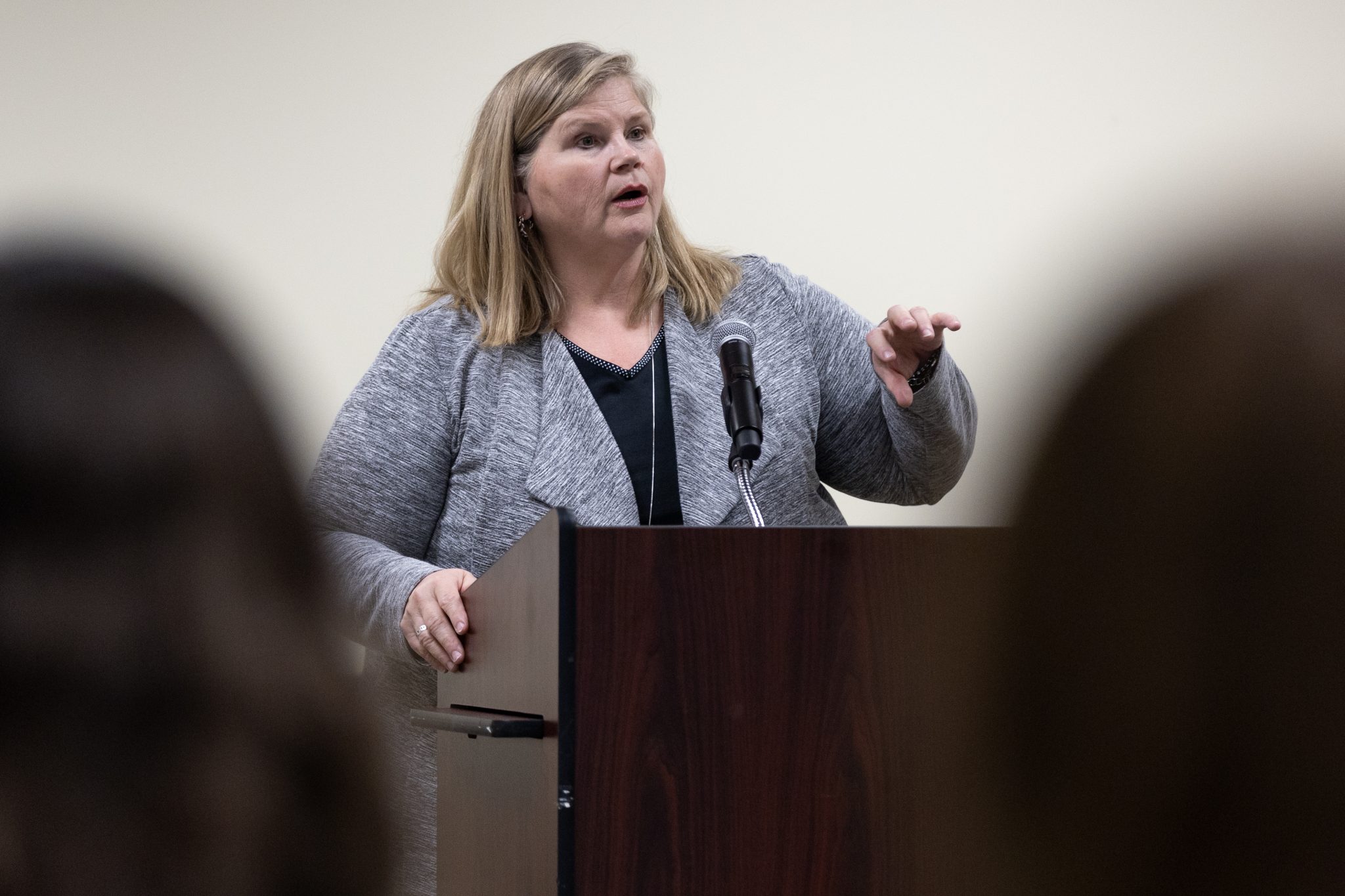At an RHA meeting Tuesday, Patty Perillo, student affairs vice president at the University of Maryland, predicted that masks may become optional in classrooms this fall.
Perillo added that this university will likely keep its COVID-19 vaccine and first booster mandates.
Although the Centers of Disease Control and Prevention recently recommended a second booster shot for those who are immunocompromised or over 50 years old, Perillo said the university won’t require a second booster unless guidance changes.
“Some people may still choose to mask,” Perillo said. “But the actual mask mandate in classrooms would likely be lifted.”
If COVID-19 case numbers stay as they are currently, Perillo said she guesses the masks in classrooms will be optional. She said she hopes the university is “a totally different place” with the pandemic in the fall.
[UMD to temporarily house Afghan refugees on campus]
This university lifted the mask mandate in dining halls, dorms, gyms, libraries and some academic spaces on Feb. 28. KN95 masks are still required in lecture halls, COVID-19 testing locations, the health center and public transportation.
Reese Artero, a freshman criminology and criminal justice major and Ellicott senator, said she had to miss classes because of COVID-19 and wanted more online lectures. She said she saw a lot of positive feedback from professors that provide video lectures but don’t solely depend on them.
Artero said she isn’t from Maryland so she wasn’t as connected to other students in her classes.
“For me, missing class last semester really hurt my grades because the professors wouldn’t provide me notes and I didn’t know other people who are comfortable doing that,” Artero said.
[UMD commuter students express worry for their wallets as gas prices stay high]
Perillo, who said she didn’t want to speak for all faculty members, said while the university found students wanted more recorded classes, many faculty members do not want to do recorded lectures.
“They just feel like they’re much better teaching and educating when they’re not being videotaped,” Perillo said. “I mean, there are all kinds of reasons why, but what we do know is that there’s a real differential between what faculty are saying and what students are saying. But I do know is that academic affairs and provost are exploring that, looking at that and seeing what works.”
After the lifting of the mask mandate in non-academic settings, some RHA senators continuously asked visiting administrators about the future of COVID-19 policies on the campus.
RHA president and sophomore government and politics major Scott Croninsaid some people may be uncomfortable with an optional mask policy since masks have been required for so long.
“It’s an ever-evolving situation,” Cronin said. “But students’ thoughts at this time of year can sometimes change. We had a long time of masks everywhere and it was a dramatic change … we lost masks in residence halls, really anywhere but the classroom and buses.”



